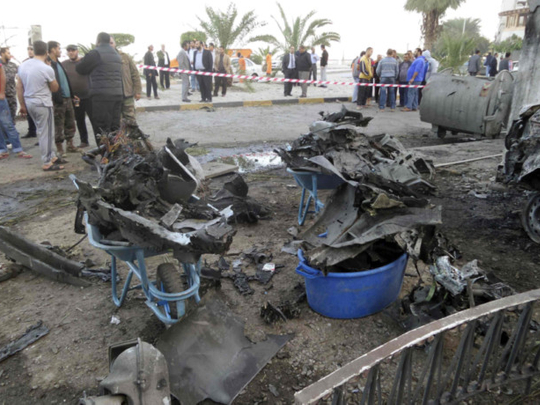
Some were surprised to see the Islamist Al Nahda party lose its majority in parliamentary elections in Tunisia to a party comprising secularists from the right and left, and even some figures associated with the old regime. After ousting former president Zain Al Abidine Bin Ali in January 2011 and sparking Arab Spring, Tunisians elected Islamists to lead the process of writing the constitution and forming a transitional government.
Last month’s election was expected to give Al Nahda a victory, though not a clear majority to enable it to form the government. However, the Islamists came second — with a good enough chunk of parliamentary seats to be a strong part of the political process, either in government or in the opposition. Tunisian Islamists learnt a lesson from Egypt, avoiding the Muslim Brotherhood’s mistakes of exclusionism and opportunism.
Decline of popular support for Islamists in Tunisia is the latest in a series of setbacks for ‘political Islam’. Before that, Libyans had voted the Islamists out of the new parliament, which led to their militias seizing the capital Tripoli and the second-largest city of Benghazi, forcing the elected and legitimate parliament to move to Tobruk in the far east of the country. [Yesterday, car bombs targetted the Egyptian and UAE embassies in Libya, though there were no casualties]. Last year, Egyptians took to the streets to oust Islamists from power and Islamists in Syria are losing privileges of Arab and western support since Daesh (Islamic State of Iraq and the Levant) declared a “caliphate” in parts of Syria and Iraq. Euphoria about so-called moderate Islamists reaping the fruits of change in the Arab world is settling down now. Though many still see the Muslim Brotherhood as the only well-organised political power with enough popular support to replace incumbent ‘old’ regimes guaranteeing some stability, that popular support is dented now. With Islamists resorting to arms and terrorism when they lose in politics, the Tunisia experience looks peculiar, as Al Nahda accepted the results and kept their vow not to compete for the presidency.
Tunisia has witnessed a rise in militancy in the past few years and groups affiliated with Al Qaida and the likes targeted army and security forces — similar to what is going on in Egypt. Whether this militancy is going to increase after Al Nahda’s electoral losses is not certain. But what is almost certain is the fact that the turmoil in Libya is destabilising Tunisia. Tunisian Islamists in power were trying to help Libyan ‘Brothers’ have a share in running the neighbouring country — even after they were voted out by Libyans and resorted to arms and terror. Pro-Brotherhood countries in the region used Tunisia as a gateway to help militants in Libya and one country used a base in southern Tunisia to provide arms to Libyan militants. When Algeria proposed a dialogue to bring all Libyan factions together for a political solution, Tunisia lobbied to include Islamists — even those outlawed by the elected Libyan parliament. All this is set to change now with any Tunisian government not dominated by Al Nahda. Also Algerian-Tunisian cooperation in fighting terror will improve, ultimately targeting the main source of the problem of terrorism for both these countries and Egypt: Libya.
Thus, the impact of the political change in Tunisia is not going to be limited to internal affairs, but will spill over regionally and a main focus will be situation in Libya and how to deal with it. First of all, one of the main vessels of external support to terrorists in Libya will be cut. And as Egypt and Algeria tighten control of their borders with Libya, Libyan militants (Islamists and Misratans) will be left only with the sea and direct external aerial supply routes. The Libyan national army is fighting to stop the misuse of the sea and air routes, but that is not enough. Though Turkish Airlines announced it will soon run daily direct flights to Misrata international airport, it may be difficult to use these commercial civilian flights for carrying arms or providing logistical support to militants in Libya. Another important issue is that Tunisia, with a new government, will be able to play an active role in enforcing an embargo on globally black-listed Libyan groups.
Though Tunisian Islamists may be part of the new government in a coalition, they will no longer have an upper hand in running the country — at least for now. This is a good opportunity for Algeria and Egypt to work with the new Tunisian government to help defeat terrorism in Libya and stop that North African country from turning into a safe haven for regional terrorism.
Dr Ahmad Mustafa is an Abu Dhabi-based journalist.










